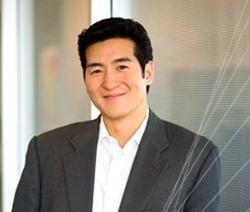Mayfield Fund managing partner Tim Chang is going long on the idea of the “quantified self,” which is about using the latest in both hardware and software technology to keep detailed tabs of people’s daily habits in the hopes of gradually improving their lives. Chang has written a three-part series of really interesting articles about the quantified self for TechCrunch in recent weeks, so we were pleased to have the chance to interview him on TechCrunch TV to hear him explain in a bit more detail about the space and where it’s going.
You can watch our full discussion in the video above, but here are a few interesting points he made:
- Numbers alone aren’t enough.
A lot of people today know the “quantified self” for health apps that track, say, the amount of calories you eat each day or how many miles you jog. But the real key in making these things successful is not just in, well, quantifying this data — it’s in parsing and packaging it in an interesting way. “Ultimately, people don’t care about data. They care about insights, meaning just tell me three fortune cookie likes things i need to focus on, then tell me what to do, and if you can, do it for me…. when you throw too much data at people it actually confuses folks. Although we think we want data, ultimately it’s not actionable and it’s not fun.”Chang has years of experience investing in gaming startups, and he sees the principles of that industry as being key to making the quantified self really take off. “When you marry gamification with the quantified self, that’s where i think the real fun begins,” Chang said. “When it’s fun, people will care, they’ll stick around, and they’ll actually engage with these types of products. Data is not engaging by itself.”
- This goes way beyond health and fitness.
Though the quantified self’s roots are in “life hacking,” Chang thinks that it will eventually move beyond that to include nearly everything that people do — work, shop, talk to friends, read, write, surf the web, and much more.“This notion of quantified self is not just about health and wellness. It’s about your consumer habits all throughout your day, from what sites you surf, what you buy, to what you like to brag about on your Facebook and Twitter,” Chang said. Measuring these actions can help make people more deliberate about their habits in all aspects of their lives. Even BranchOut, the professional social network in which Mayfield just led a $25 million investment, fits into this idea, Chang said.
- Quantifying yourself could help you meet others.
The more people dig into their specific habits and interests, the more appetite there will be for them to meet other people who share them. Chang sees a big opportunity right now for niche communities built on top of Facebook, Twitter, Pinterest and other social networks that allow people to congregate around these passions.“I’m really big into vertical communities that are going to pop up around interests, or these other aspirational personas you have. Because if you think about it, people aren’t black and white,” Chang said. “We’re all like onions in the sense that we have all these sub-personas and layers to ourselves. There are a lot of interests that we have. Each of those interests have their own community, and you want to meet new people in those interests as well.”
